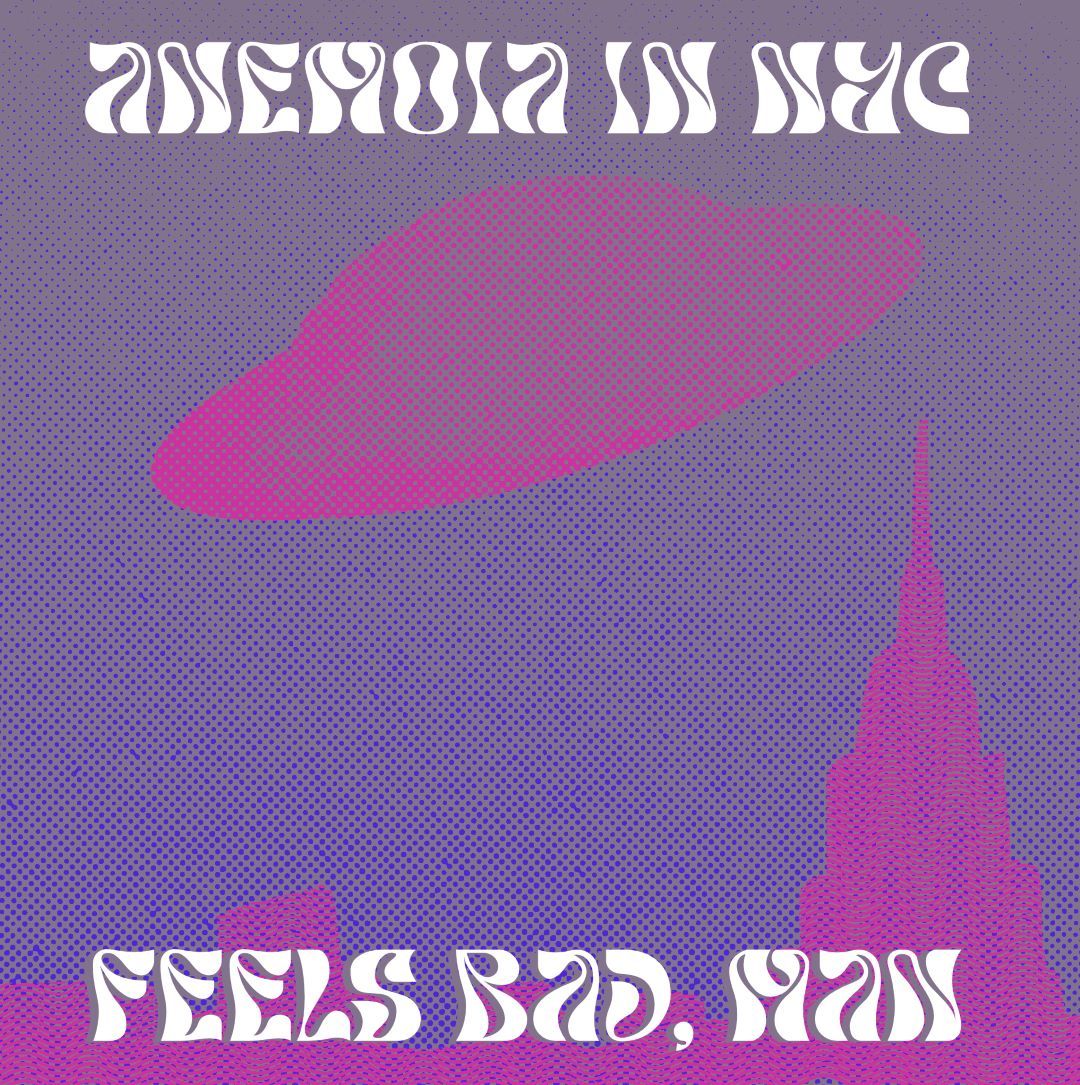Midcentury UFO literature, anemoia, and bitterness: Part 2

Check out part one of this post.
One of my favorite terms is anemoia, or "nostalgia for a time or place that one has never known." It was coined in John Koenig's Dictionary of Obscure Sorrows, which I own but haven't read cover-to-cover yet.
I wonder, is there a term for nostalgia for a time that it is impossible for you to know? (I'll let you know if I find out.)
I started writing this post (and yesterday's post) with the intention of talking about the sometimes unbearable, sometimes alluring nostalgia and anemoia of a lot of UFO literature that I've been reading.
I've been particularly interested in John Keel's work recently. A month or so ago, while flipping through his old Anomaly newsletter on archive.org, I realized that I'm not just attracted to some of his thoughts about UFOs.
I'm certainly interested in what he has to say about the paranormal, of course. But part of my fascination with his work is anemoia.
Keel was part of a generation of people who could make a good, secure living off of journalism and writing. As I discussed in depth yesterday, that's something that is almost unheard of today (and you can believe me, as someone who has worked in adjacent industries my entire career).
You can eke out a living as a writer these days, if you're lucky, but it is incredibly difficult. Especially if you're looking to publish things with your byline. Especially if you want health insurance. There's none of that prosperity that seemed to characterize writing in the midcentury, when pulp magazines were big.
And so much of the history of UFOs seems to be tied up in the pulp magazines.
Think about someone like Raymond Palmer, who was a pulp magazine editor before he became the publisher of UFO and paranormal magazines. He popularized the Shaver Mystery during his tenure at Amazing Stories, leveraging the popularity of the pulp magazine to bolster this supposedly true, conspiracy-theory-esque piece of fiction. He had a nice career as a publisher and author.
I love looking through old UFO magazines on archive.org, but it can be difficult sometimes.
I vacillate between feeling nostalgic and loving the sense of time and place that these magazines evoke, and feeling deeply jealous, resenting people who had easier, more straightforward careers then many writers have nowadays.
It can be a difficult thing to balance, and I don't think I'm the only artist-type millennial who feels both deep anemoia and bitterness when thinking about a time and a place when getting paid for creative work was easier, both because the cost of living was so much lower and because pay was so much higher.
I feel a similar set of emotions when reading some of Whitley Strieber's books. If I recall correctly, in Communion, he mentions owning both an apartment in Manhattan and a cabin in Upstate New York. That sort of prosperity as a writer nowadays just doesn't exist, except for a few big names. The cost of real estate in all of the United States, but especially in the New York City area, is eyewatering.
Anyway, I'm sure I'm not the only person who feels this way. But it is a strange mix of emotions to feel creeping in while doing paranormal research.
And it makes a certain sort of sense to me that the anemoia that motivates me today while reading about midcentury UFO lore is so similar to the feelings that motivated me to read so much midcentury literature that was set in New York City back when I was a teenager.
I love the stories and the images they conjure. Sometimes I can imagine that it's all fiction, the same way I might read fantasy novels set in alternate universes. Sometimes I can get wrapped up enough in the nostalgic lore that I can imagine I'm there. I look at old UFO newsletters, admire their homespun charm, the typewritten text and Xeroxed newspaper clippings.
But then I slip back into reality and feel my resentment simmer.
It's not that I think things should be like they were in the 1950s. But it's hard not to feel rage that now, more than ever, everyone could be living more prosperous, easier lives, but we aren't. We have so many more resources and time-saving technologies than we did before. But so often, instead of helping us, those technologies are typically leveraged against the very people they could be aiding.
So—what's my point here?
It's easy to look past our own emotions and biases when doing paranormal research. To strip information from its context—both the context of its author and time, but also our own context as readers. (Or at least it's easy to convince yourself you're being "objective.")
But even if you ignore your own feelings--or don't bother trying to examine them--that doesn't mean that they don't color your research. Your feelings still guide your curiosity, lead you to some topics and away from others.
And the context in which things are written change both the story that the author is telling, and also the story of the people from whom they collected their data.
I'm not particularly well-read when it comes to UFOs, and I'm curious how the changing world and peoples' changing prosperity might have affected UFO literature from the mid-century and beyond. It's something that I certainly have an eye out for and as I read.
And you can expect plenty more nostalgic and anemoic dispatches from me as I dig into more retro UFO literature. Because while I have plenty of critical, bitter thoughts, I still can't help but be charmed by the aesthetic, charm, and sparkling optimism that creeps into midcentury writing.

